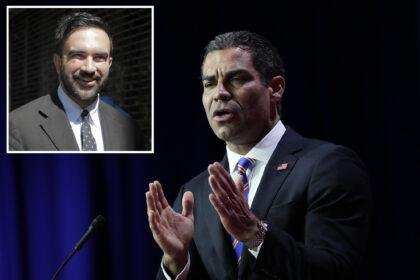Justice Department Appeals Ruling on National Guard Deployment in Portland
The Justice Department has announced its intention to appeal a recent ruling by U.S. District Judge Karin Immergut, which determined that President Trump does not possess the authority to deploy Oregon National Guard members to safeguard federal buildings in Portland. This legal battle highlights the ongoing tensions between federal and state authorities, particularly in the context of civil unrest and law enforcement.
Background of the Case
The controversy stems from a series of protests that have erupted in Portland, particularly around an Immigration and Customs Enforcement (ICE) facility. These protests, which have been characterized by some as chaotic and violent, have drawn national attention. In response, President Trump sought to deploy National Guard troops to maintain order, citing his authority as Commander in Chief under U.S. Code § 12406. This statute allows the president to call upon the National Guard in situations deemed necessary for national security.
White House Press Secretary Karoline Leavitt expressed strong support for the president’s actions, stating, “The president is using his authority as Commander in Chief, which clearly states that the president has the right to call up the National Guard in cases where he deems it’s appropriate.” Leavitt emphasized the need to protect federal assets, arguing that the situation in Portland had been dire for over 100 days, with federal buildings under siege by what she termed “anarchists.”
Judge Immergut’s Ruling
In her ruling, Judge Immergut, who was appointed by Trump himself, asserted that deploying active-duty troops to Portland would violate the U.S. Constitution and federal law, which prohibits military involvement in domestic law enforcement. She described the protests as “small and uneventful,” suggesting that the president’s assessment of the situation was exaggerated and not grounded in reality. Immergut’s decision temporarily barred the deployment of the Oregon National Guard, stating that the president’s determination was “untethered to the facts.”
This ruling has sparked a heated debate about the balance of power between federal and state governments, particularly in times of civil unrest. Historically, the deployment of military forces in domestic situations has been a contentious issue, often leading to legal challenges and public outcry. The Posse Comitatus Act of 1878, which restricts the use of federal military personnel to enforce domestic policies, is frequently cited in these discussions.
The Administration’s Response
Following the ruling, President Trump attempted to circumvent the court’s order by seeking to deploy National Guard troops from California and Texas. This move was met with immediate scrutiny, as Judge Immergut noted during a subsequent hearing that such actions appeared to directly contravene her ruling. “It seems to me that based on the conduct of the defendants and the now seeking National Guard from Texas to go to Oregon again, I see those as direct contravention of the order that was issued yesterday,” she stated.
Leavitt remained optimistic about the administration’s chances in the appeal, asserting that they are “very confident that we will win on the merits of the law.” She also referenced a previous ruling by the Ninth U.S. Circuit Court of Appeals, which upheld Trump’s authority to deploy the California National Guard during anti-ICE protests in Los Angeles. This precedent may play a crucial role in the upcoming legal proceedings.
Historical Context and Implications
The current situation in Portland is reminiscent of past instances where federal and state authorities clashed over the deployment of military forces during civil unrest. The Kent State shootings in 1970 and the Los Angeles riots in 1992 are notable examples where the use of military personnel in domestic situations led to significant public backlash and legal ramifications. These historical events underscore the delicate balance that must be maintained between ensuring public safety and upholding constitutional rights.
The implications of this case extend beyond Portland. As protests continue to erupt across the nation, the legal precedents set in this case could influence how future administrations respond to civil unrest. The ongoing debate over the role of the National Guard in domestic law enforcement raises critical questions about the limits of executive power and the rights of states to govern their own affairs.
Conclusion
As the Justice Department prepares to appeal Judge Immergut’s ruling, the nation watches closely. The outcome of this case could have far-reaching consequences for the relationship between federal and state authorities, particularly in the context of civil unrest. With both sides firmly entrenched in their positions, the legal battle over the deployment of the National Guard in Portland is likely to continue, reflecting the broader tensions that characterize American society today.











